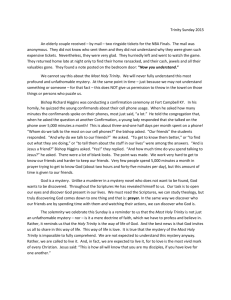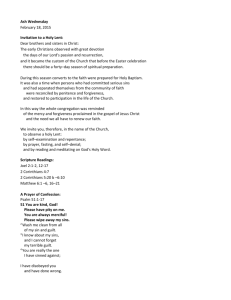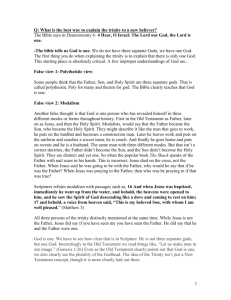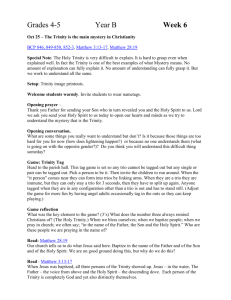Communication - Together In God`s Love
advertisement
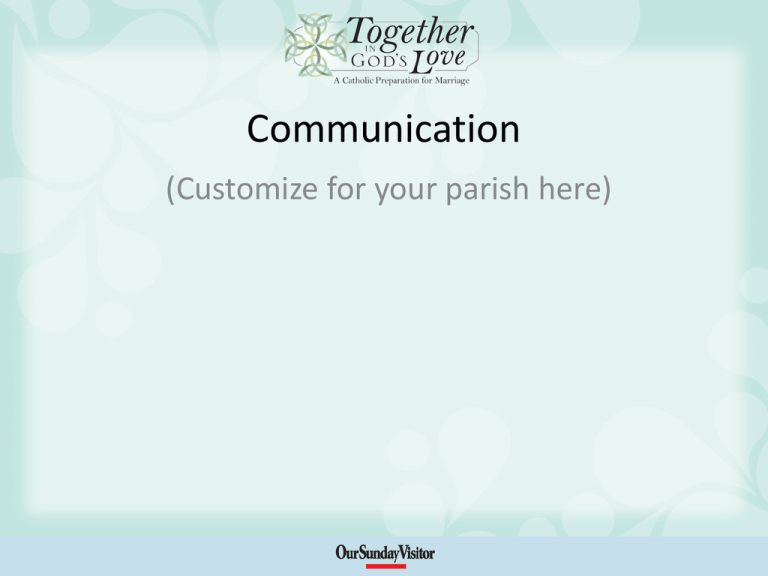
Communication (Customize for your parish here) Question for Reflection • Discuss with one another: What was communication like in your family of origin? How similar (or different) is your own style of communication now? Communication and the Holy Trinity • The three persons of the Trinity are distinct, have different roles, yet share a common purpose and intimate union • Jesus showed a variety of emotions, but always showed them with love • Our communication with one another should be honest and straightforward, but always spoken in love. Communication and the Holy Trinity • Jesus’ style of speaking • Holy Spirit at Pentecost • We need to remember that the point is not just to “get our say,” but also to be understood by our spouses. Communication and the Holy Trinity • Jesus prioritizes his relationship with the Father • Jesus takes time out to be alone in prayer • Communication must be a priority, even if it means interrupting important things like work projects or spending time with the children. Communication and the Holy Trinity • One God reveals himself as three persons, who act in concert: – In Old Testament, we see promises of the Messiah – In the gospels, Jesus promises to send the Holy Spirit – The Holy Spirit makes the message of Christ understood on the day of Pentecost • Where good communication exists, there is trust and collaboration. Communication and the Image of Jesus and the Church • • • • Total gift of oneself to the other Two-way gift: two people become one Example of Christ and the Church Healthy communication in a married relationship is about self-giving love. There is trust that what is “good for us” is also “best for me.” Self-centered Expression vs. Selfgiving Expression (see p. 23) • Self-centered expression is about “what you need to do to please me” • Self-giving expression: “I am trusting you enough to show how I feel and looking for ways to work things out;” “I trust you to care for me.” • Remember, in marriage, you’re on the same team! • “Styles of Expression,” p. 24 Communication is also Listening • Self-centered listening: putting up walls and defending ourselves with excuses, rationalizations, or insults against the other • See p. 25 and “Styles of Listening” box Trust, Forgiveness, and Reconciliation • Self-giving love must be mutual • Steps toward reconciliation – Think through situation, and consider other’s point of view – Allow yourself to be vulnerable and admit you were wrong, even if you feel the other person didn’t handle the situation well either – Express understanding; make a commitment to avoid being hurtful in the future – Forgiveness is a choice, trust is not When you are hurt • Recalling and expressing the hurt is the first step towards reconciliation • Make a decision to work towards reconciliation • Try to imagine yourself in the other person’s shoes • Offering forgiveness means expressing a willingness to work towards trust again Discussion Questions • What makes a good listener? • How can you tell when someone is listening? Prayer • See prayer, p. 32





